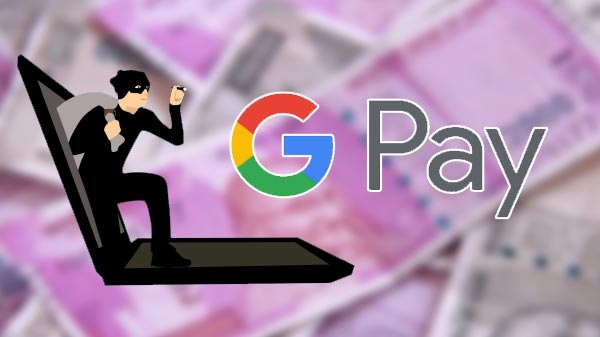Just In
- 11 hrs ago

- 13 hrs ago

- 13 hrs ago

- 13 hrs ago

Don't Miss
- Movies
 Pavi Caretaker Box Office Collection Day 1 Prediction: Dileep's Movie Expected To Open Strongly
Pavi Caretaker Box Office Collection Day 1 Prediction: Dileep's Movie Expected To Open Strongly - Sports
 Who Won Yesterday's IPL Match 41? SRH vs RCB, IPL 2024 on April 25: Royal Challengers Bangalore End Losing Streak
Who Won Yesterday's IPL Match 41? SRH vs RCB, IPL 2024 on April 25: Royal Challengers Bangalore End Losing Streak - Finance
 Bajaj Group Stock Declares Rs. 60/Share Dividend: Buy Ahead of Record Date On 28 June?
Bajaj Group Stock Declares Rs. 60/Share Dividend: Buy Ahead of Record Date On 28 June? - News
 MEA Dismisses US Human Rights Report On Manipur As 'Biased And Misinformed'
MEA Dismisses US Human Rights Report On Manipur As 'Biased And Misinformed' - Automobiles
 Royal Enfield Unveils Revolutionary Rentals & Tours Service: Check Out All Details Here
Royal Enfield Unveils Revolutionary Rentals & Tours Service: Check Out All Details Here - Education
 AICTE introduces career portal for 3 million students, offering fully-sponsored trip to Silicon Valley
AICTE introduces career portal for 3 million students, offering fully-sponsored trip to Silicon Valley - Lifestyle
 Heeramandi Screening: Alia Bhatt, Ananya Panday, Rashmika Mandanna And Others Serve Finest Ethnic Style!
Heeramandi Screening: Alia Bhatt, Ananya Panday, Rashmika Mandanna And Others Serve Finest Ethnic Style! - Travel
 Escape to Kalimpong, Gangtok, and Darjeeling with IRCTC's Tour Package; Check Itinerary
Escape to Kalimpong, Gangtok, and Darjeeling with IRCTC's Tour Package; Check Itinerary
Effective Tips To Stay Safe From Google Pay, PhonePe, Paytm KYC Fraud
In the wake of many incidents wherein people are cheated by fraudsters, the Delhi Police has come up with an advisory to the users of digital payment and e-wallet users. They have listed out things that people should not do to make sure they don't fall prey to KYC fraud.
|
Of late, several people have fallen prey to fraudulent calls portraying to be related to payment apps such as Google Pay, Paytm, and PhonePe and have met with huge losses. To make sure people are safe, Delhi Police took to Twitter jotting down a few points to keep in mind as detailed below.

Do Not Click On Links Within Messages
Mostly, KYC frauds are initiated via messages wherein fraudsters might want you to visit a URL. You should be careful not to click on such links and should not follow the instructions shared in the messages. If there is anything suspicious, you should contact the app's customer care or the cyber cell.

Do Not Install Apps They Suggest
In some cases, fraudsters might call you and ask you to install an app. Remember that phishing via app is quite common. The fraudsters might tell that your KYC has expired and you should validate it online via an app to continue using the payment and e-wallet apps. You should stay away from installing any app suggested by the callers portraying to call you from the customer care of payment apps as these malicious apps can clone your phone and reveal sensitive details such as passwords, usernames, etc.

Do Not Make Any Transaction
A fraudster trying to call you to make you susceptible to phishing might ask you to transfer a small amount as low as Re. 1 to your wallet for validation purpose. Do not attempt any such transfer as they will gain access to your account via the installed app and transfer a hefty sum from your bank account.

Do Not Call Any Number In KYC SMS
Lastly, there could be KYC messages that are claimed to be sent via the payment and e-wallet apps. These pseudo messages might have numbers that might lead to phishing activities. So, never attempt to call any such suspicious numbers that you get on text messages.
While e-wallets and digital payments offer great levels of convenience, remember to keep these points in mind to stay safe in the vulnerable online world.
-
99,999
-
1,29,999
-
69,999
-
41,999
-
64,999
-
99,999
-
29,999
-
63,999
-
39,999
-
1,56,900
-
79,900
-
1,39,900
-
1,29,900
-
65,900
-
1,56,900
-
1,30,990
-
76,990
-
16,499
-
30,700
-
12,999
-
11,999
-
16,026
-
14,248
-
14,466
-
26,634
-
18,800
-
62,425
-
1,15,909
-
93,635
-
75,804












































